‘National disgrace’: Freelancer CEO Matt Barrie slams ‘immigration ponzi’ as housing crisis deepens
Outspoken tech executive Matt Barrie has taken aim at the Albanese government’s record high immigration and offered a bleak prediction for Sydney.
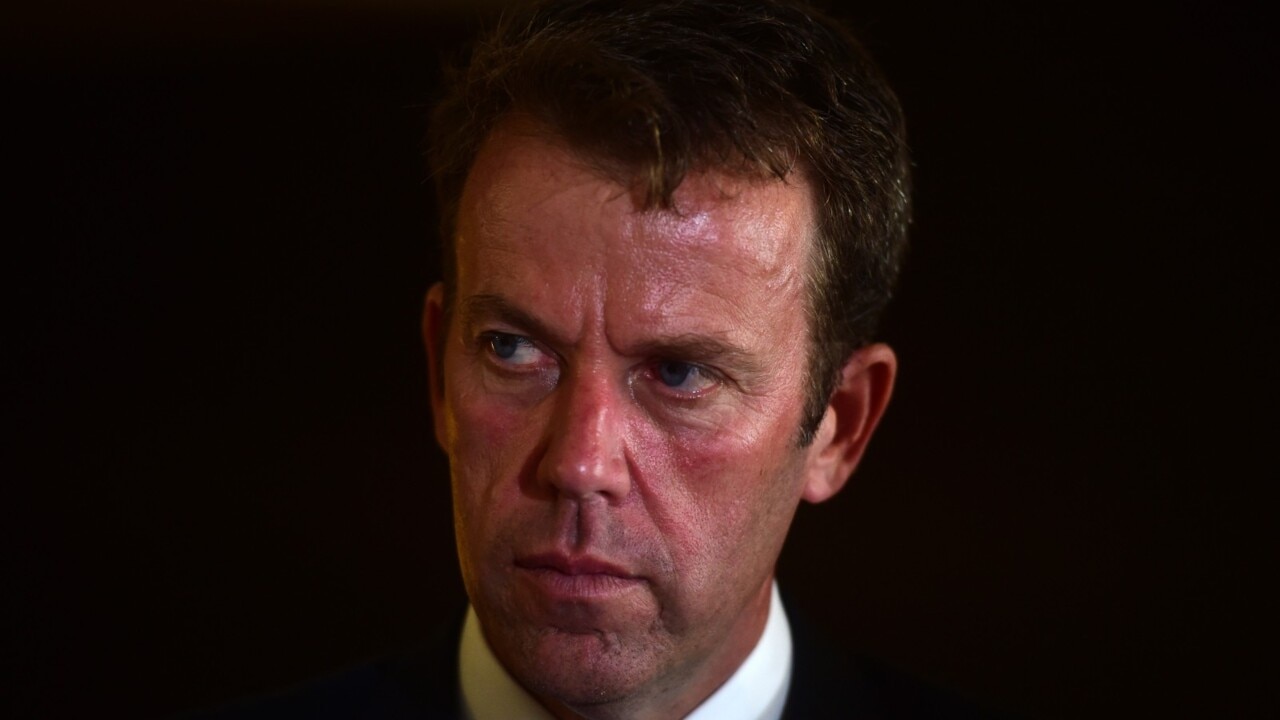
Outspoken tech executive Matt Barrie has blasted the Albanese government’s record high immigration intake as a “national disgrace” in a blistering speech to business leaders and bureaucrats.
The Freelancer chief executive, speaking at The SMH Sydney 2050 Summit on Monday, tackled the hot-button issue of migration and housing in a lengthy keynote address entitled “The Great Australian Scream”.
“The US uses quantitative easing to drive ‘easy, relentless’ growth — Australia uses quantitative peopling,” Mr Barrie said.
“This is not about ‘growth’ but inflating demand for housing. It’s not about the ‘economy’ but inflating GDP. But population growth does not increase GDP per capita.”
Home Affairs Minister Clare O’Neil told the National Press Club in April that Australia “faces genuine and significant challenges providing safe affordable housing” but insisted “these problems are not caused by migrants”.
“I guess she thinks the Canberra-sized armada each year are all nicely in tents in someone’s backyard,” Mr Barrie said.
“What’s crazy about the ponzi is 69 per cent of immigrants are in rental stress, with outgoings greater than income, the second worst group after the elderly. That’s why they say migrants are net contributors to the economy — because they’re drawing down their savings to live.”
He described the immigration crutch as Australia’s “big, uncomfortable secret”.
“With the highest inflation in decades, sharply declining real wage growth, the worst rental crisis on record, overloaded infrastructure, construction blowouts, bureaucracy, mass insolvencies, extreme cost of living and the largest destruction in purchasing power in 50 years — the solution is, as always, more people, despite this being the root cause,” he said.
“It’s sending the Australian middle and working classes into poverty. It is politically untenable. Also frankly, I think, morally wrong and a national disgrace.”
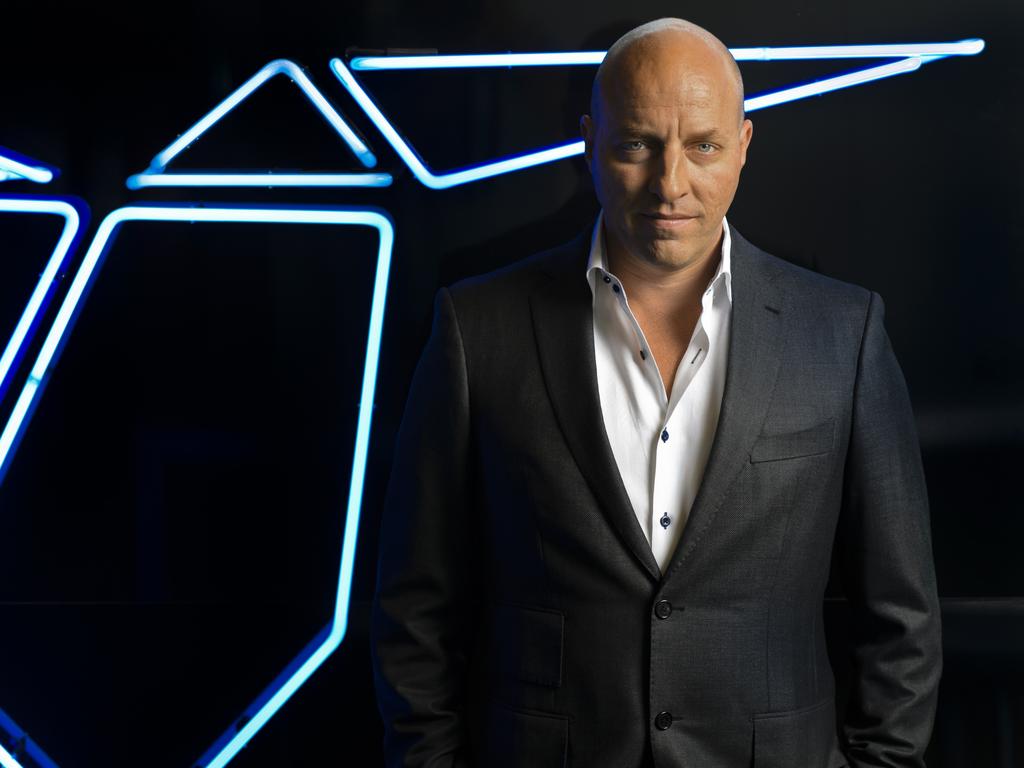
A number of commentators have argued that immigration is not to blame for the housing crisis. One group, the South East Queensland Union of Renters (SEQUR), said recently that “politicians and the landlord class have chosen a scapegoat”.
“The media has increasingly begun to argue or imply that foreign migration is a major factor in skyrocketing rents and rental competitiveness,” the group wrote on Facebook.
“This is similar to the old propaganda lies that workers from other countries are to blame for any number of problems plaguing the working class. It was a lie back then, and it is a lie now. Landlords are to fault for increasing rents, just as bosses are for low earnings.”
SEQUR argued it was “ludicrous to blame international tenants when hundreds of thousands of properties sit unoccupied or are as short-term accommodation instead of homes”.
“The blame lies with politicians, landlords and the real estate industry,” it said.
But Mr Barrie said the assertion that immigration had no effect on housing was ridiculous.
“Of course it does — it’s simple supply and demand, it’s basic economics,” he told news.com.au. “If that’s the argument why not bring in 20 million people?”
Mr Barrie said as more Australians were pushed into hardship and even homelessness, the immigration rate was “going to become a politically untenable position for the Albanese government”.
“He’s obviously talked to the banks and there’s a real recession or economic crisis coming, that’s why he’s opened up every spigot or tap you can turn on, literally every aspect of our immigration program,” he said.
“A whole lot of people are being brought in, which is causing pain for the people already here. In Brisbane people are living in tents in a park in the city. People are lining up for food and handouts. There’s mums begging on Facebook in mums groups. It’s really hurting people now.”
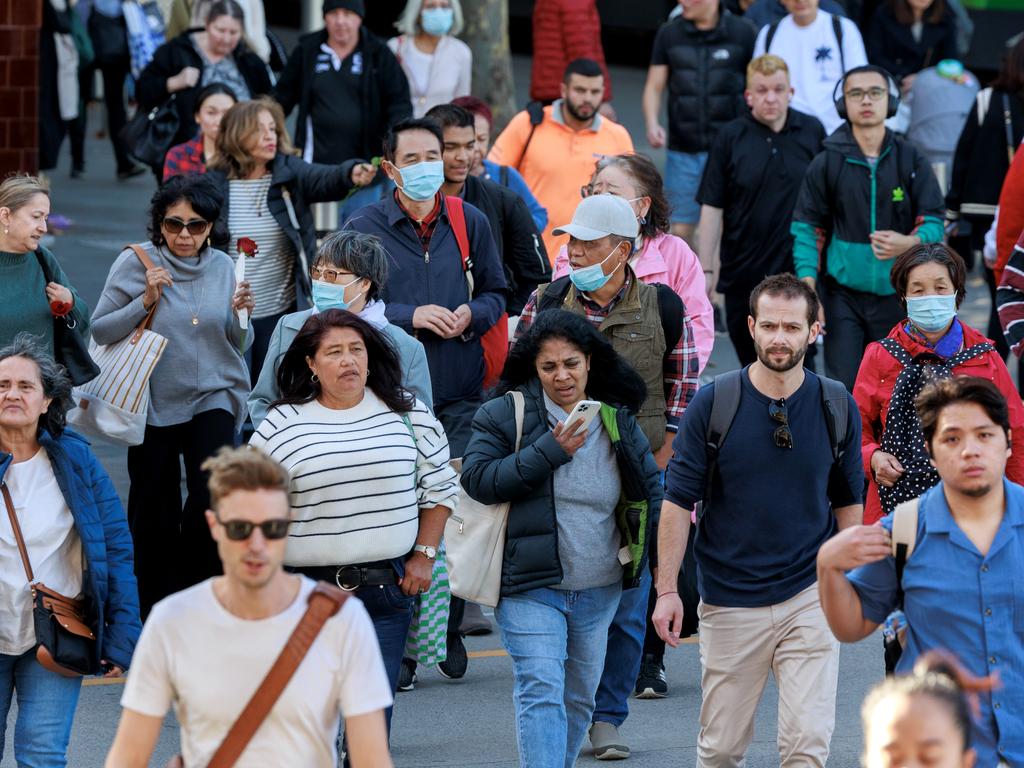
Opinion polls have consistently shown Australians are, at best, deeply divided on the question of immigration.
In 2021, a poll conducted for The Sydney Morning Herald revealed deep concerns about bureaucrats’ plans to turbocharge population growth after Covid, with 58 per cent of voters backing the idea of restarting immigration at lower than pre-pandemic levels.
Just 7 per cent of voters in that poll of more than 1600 wanted migration restarted at a higher level than in the past, while another 20 per cent wanted to return to a permanent intake of about 160,000 per year.
Before Covid, successive Australian governments facilitated a 15-year immigration boom which saw net overseas migration average at 220,000 annually.
Net overseas migration reached 240,000 in 2018-19, before falling sharply to around 194,000 in 2019-20.
The long-term average prior to the Howard government was about 80,000 per year, a figure often touted by entrepreneur Dick Smith.
A Lowy Institute poll of more than 2000 people last year found 46 per cent wanted immigration to return to around the same as pre-pandemic levels, 33 per cent said it should be lower, while 21 per cent argued it should be higher.
Meanwhile, a survey of more than 3000 voters by The Australian Population Research Institute (TAPRI) earlier this year found only 18 per cent of respondents wanted to return to pre-Covid levels, while 70 per cent wanted lower or even zero immigration.
Sixty-five per cent of respondents in the TAPRI poll also said that overall, Australia does not need more people.
Congestion and overcrowding, pressure on hospitals, the effect on the environment and increasing cost of housing were all strongly cited as reasons “we don’t need more people” by survey respondents.
Despite these concerns, the question of immigration is never put to the voters.
Abul Rizvi, a former deputy secretary in the Department of Immigration, told The Age last year that neither party had anything to gain politically by committing to increasing migration during an election campaign.
“If the Prime Minister were to come out and say, ‘I’m going to increase my migration program to 190,000 per annum as assumed in my budget papers’, he’s gone, 100 per cent,” he said.
“He’ll never say it — and neither will the opposition.”
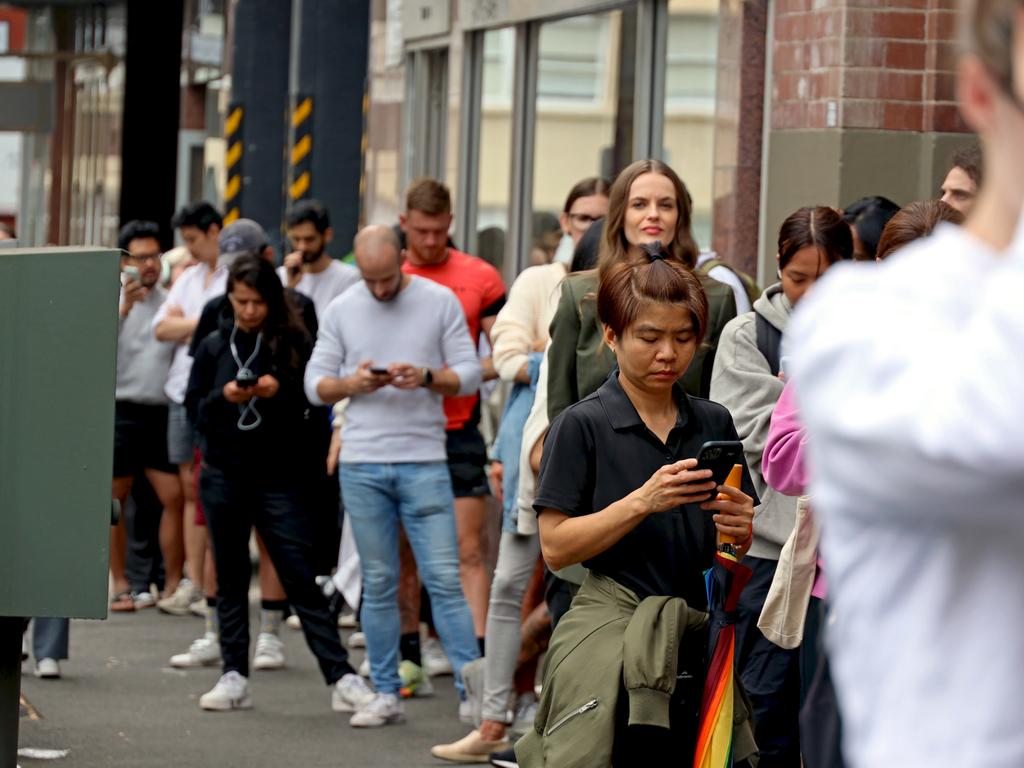
Last week’s federal budget forecast net overseas migration to hit a record high of 400,000 in 2022-23 before falling to 315,000 in 2023-24 and then a projected long-term rate of 260,000 — a full 40,000 higher than the pre-pandemic “Big Australia” level.
“Australia’s population is officially projected to increase by 2.18 million people in the five years to 2026-27, or by an average of 435,200 people each year,” MacroBusiness co-founder Leith van Onselen wrote for news.com.au last week.
“To put that figure into perspective, it is equivalent to adding a Canberra’s worth of people to Australia’s current population each year for five years, but obviously without the housing and infrastructure to match.”
On Monday, the Business Council of Australia (BCA) released a paper stressing the importance of migration.
The House Australia’s Talent report included a survey of more than 2000 people which found two thirds wanted “properly planned an managed migration”.
The survey question asked, “If migration is properly planned and managed (enough services and infrastructure and housing were provided), do you agree or disagree that migration is a good thing for Australia?”
BCA chief executive Jennifer Westacott told ABC NewsRadio “declining supply” was the key issue with housing, not migration. “Two thirds of Australians want well managed migration, they know that it’s important,” she said.
“Most people are experiencing a crisis in getting labour, that’s putting costs up. So we’ve got to separate the two issues to really have a proper national debate about this. Because a lot of the migration that we’ve seen in the budget — the 400,000 figure — is temporary migration, so a lot of that is students and they’re taking the jobs in hospitality and retail. Those sectors are under a lot of pressure to find labour, so they’re actually filling spots that are needed by small and large businesses.”
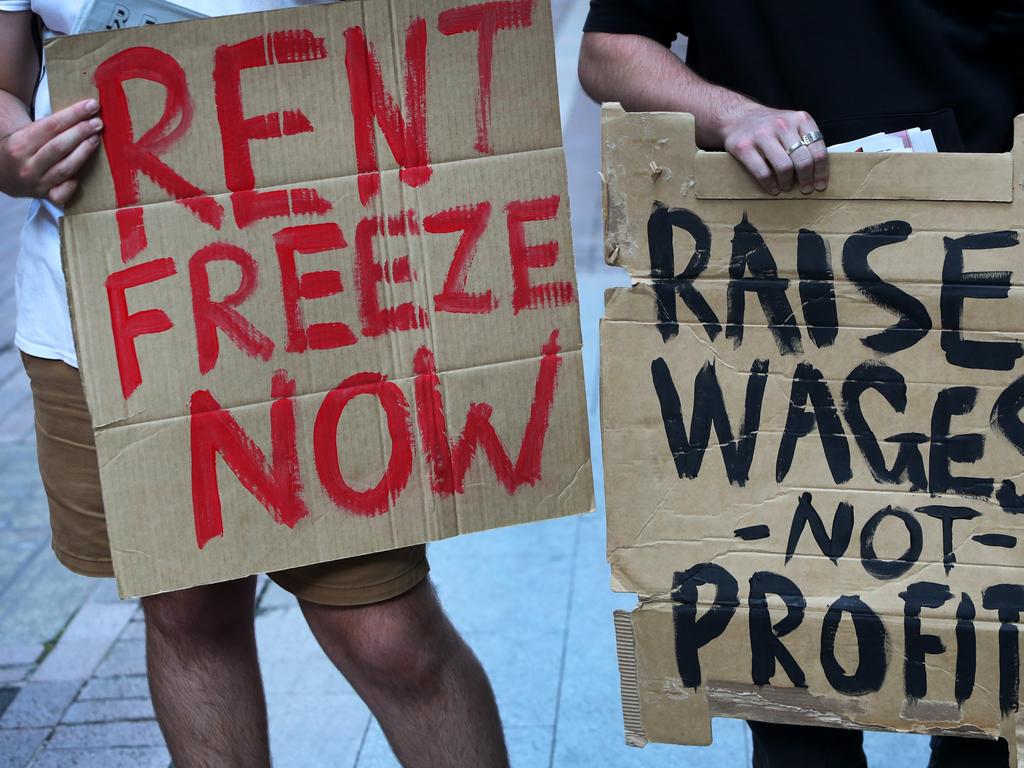
ABC host Thomas Oriti pointed out “they still need a place to live, though”.
“Of course, they do,” Ms Westacott said.
“It’s not to say there’s no impact, we’ve got to make sure we get the right problem solved. The problem we’ve got to solve is that our housing supply has been going backwards. We don’t have enough diversity of housing products, things like build-to-rent. We haven’t really modernised our housing system for a long time in this country and that’s what our paper is calling for.”
Speaking to reporters on Monday, Shadow Treasurer Angus Taylor said last week’s federal budget added “1.5 million migrants without a plan”.
“Labor does not have a plan for an additional 1.5 million migrants over the coming years and that is very frustrating for Australians,” he said.
“Now we strongly believe in immigration as an important part of the policy mix in this country — it’s been a huge part of the success of this nation. But it can’t be unplanned.”
Mr Taylor dismissed criticism that the Coalition is blocking the Housing Australia Future Fund, which would build 30,000 homes over five years, calling it a “drop in the ocean”.
“There’s reasonable estimates that have been made with an additional 1.5 million Australians, as well as organic population growth inside Australia, there will need to be more like 750,000 homes, so this is not solving the problem,” he said.
“What we want to see is a plan that [includes] all those complementary things that are required for successful immigration — infrastructure investment, housing investment, services — and there was nothing, there was nothing in this budget that gives us any confidence that that plan is in place or will come into place anytime soon.”
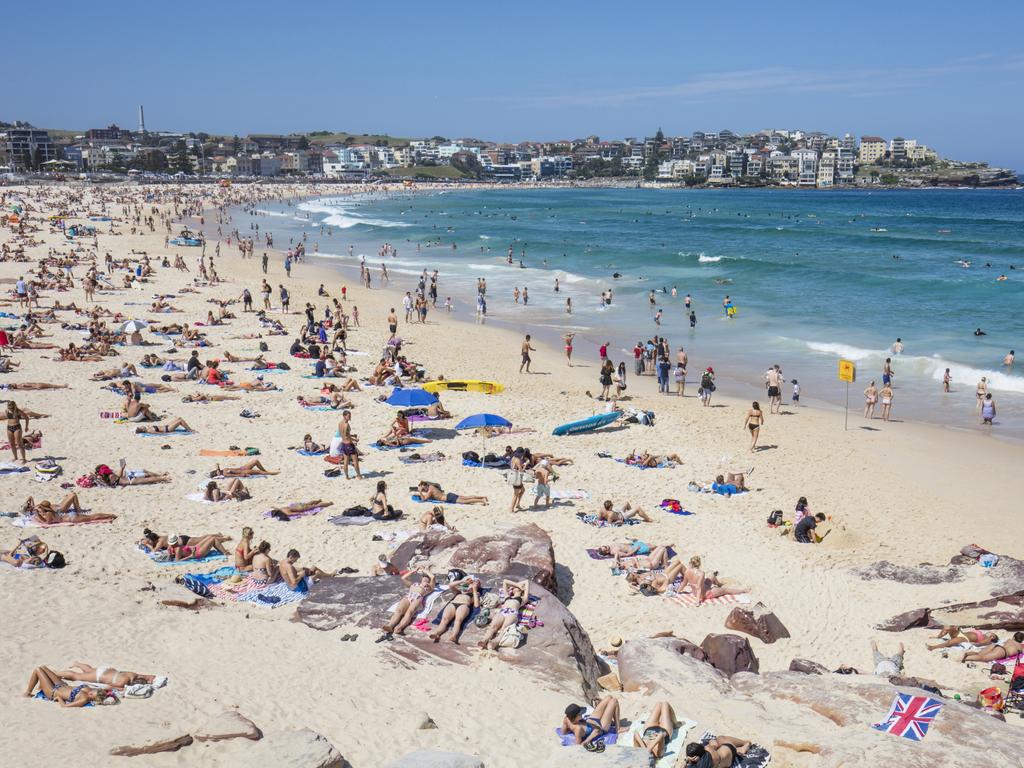
Sydney’s grim 2050 future
Mr Barrie agreed there was simply no way for Australia to build the amount of housing required to keep up with the demand.
“First of all there’s not enough builders in the country, the number of labourers hasn’t moved in a decade, materials costs are too high, there’s record insolvencies happening with construction companies,” he said.
“We’re building like 30,000 a year in Sydney, we’ve got all the cranes in the world here — there’s 10 cranes in New York and 365 in Sydney, it’s just insane — and it’s been going for a long time. We’ve been building apartments for well over a decade at the most astronomical pace.”
In his speech on Monday, Mr Barrie blamed Australia’s stifling bureaucracy for the decline of Sydney’s prestige as the “world’s best city for festivals and events seven years in a row”.
“Boy did we stuff it up,” he said.
“Last year, Sydney was ranked the third worst in the world for making friends by Time Out, the second worst nightlife in the Global Liveability Rankings, the sixth worst airport for cancellations and ninth for delay and the second least affordable city in the world.”
He recalled the difficulty trying to find a restaurant open after 9pm in the city. “The restaurant is trapped between astronomically high rent, labour costs and bureaucracy,” he said.
“On the flipside, despite the highest casual wages in the world, its workers can’t afford to live ... I thought, Jesus Christ, they’ve stuffed up this city. How bad will they stuff it in 20 more?”
Mr Barrie said the challenges for Sydney 2050 are “many and complex”.
“The root of all evil is the cost of property, that squeezes the life and soul out of everything,” he said.
“There is no justification for Sydney being the second most expensive in the world. At this point, either wages need to go up 50 per cent or house prices need to halve. Businesses can only afford to increase wages if they cut half their staff, and the AI might indeed sack them.”






